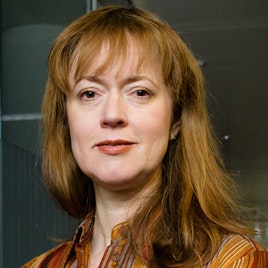A Welcome Message for Vulnerable Citizens
By Heather Grabbe
The following originally appeared in the European Voice. Heather Grabbe is director of the Open Society Institute-Brussels and director of EU affairs for the Open Society Foundations.
The clarity of the language that Viviane Reding, the European commissioner for justice, employed on Tuesday (September 14) about France's expulsion of Roma was a breath of fresh air after several years of euphemisms and legal uncertainties from EU officials about the treatment of Roma in many countries.
It is a pity that it took six weeks for the European Commission to issue such a clear statement – by which time the world's press had run many stories about racist persecution at the core of Europe. Holidays and legal niceties are sacrosanct in the EU, but the Union's soft power has taken a battering in the meantime. You cannot promote values abroad while they are violated at home.
Reding's statement has exposed the clearly discriminatory intent of France's mass expulsions, as well as the bad faith of French ministers.
For years, Italy has played the game of fobbing off Commission enquiries with answers that make its own treatment of the Roma look just on the right side of the law to officials. It is now time for the Commission to look more closely at the targeting of the Italian “census” on Roma, which the government claimed was intended to ensure they received better housing and social services. No Roma appear to have benefited from new housing, but plenty of men, women and children have been deported after having their fingerprints taken.
Reding's words also sent an encouraging signal that the second Barroso Commission intends to uphold the fundamental principles that bind the Union together, most notably the rule of law. If Reding has the backing of President José Manuel Barroso and the entire college of commissioners to launch infringement proceedings against France on two such fundamental legal principles, the Commission is standing up not only for equal rights for all citizens, but also for the equality of all member states before the law—even big and powerful ones.
That is a welcome message for the most vulnerable people in European societies, and for the smaller and newer countries that have sometimes wondered whether they have second-class membership.

Until November 2023, Heather Grabbe was a senior adviser to the Open Society Foundations.


